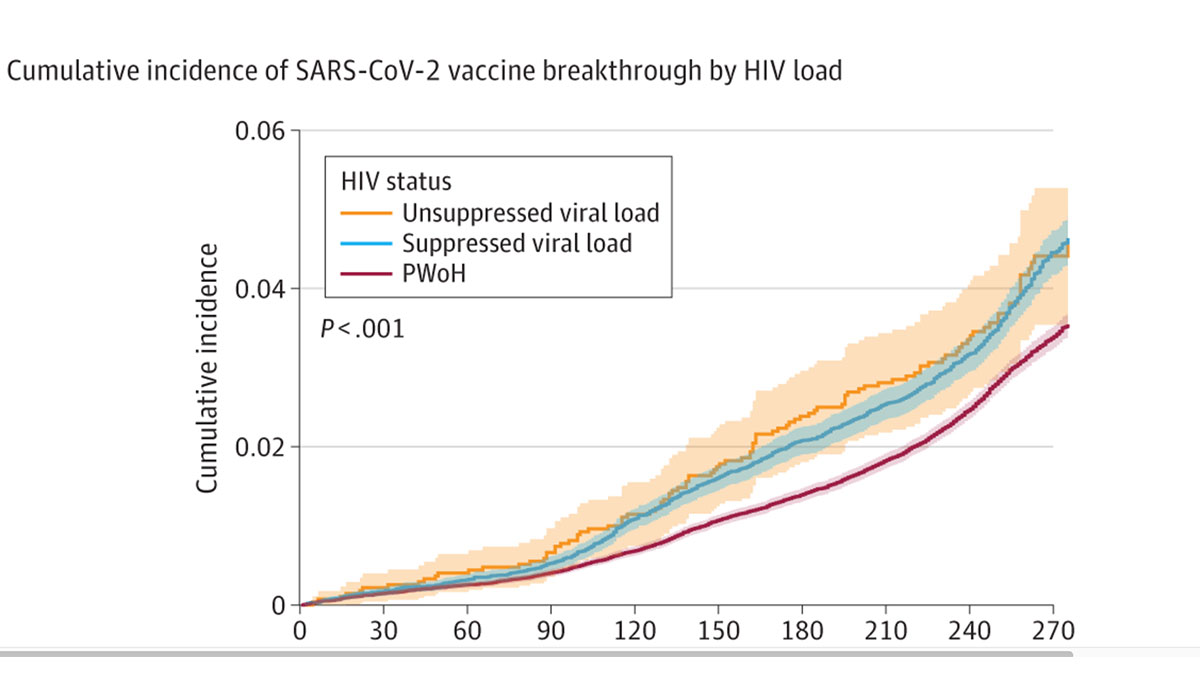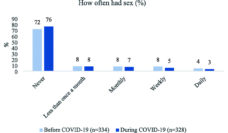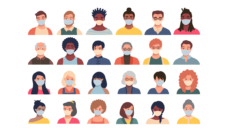People living with HIV have been one of the most vulnerable populations during the reign of COVID-19. As the name suggests, the human immunodeficiency virus causes an immunocompromising condition that increases the risk of developing life-threatening complications from COVID-19. COVID-19 vaccinations and boosters are highly recommended for people living with HIV, but CDC recommendations for primary vaccine doses vary based on a person’s HIV viral load and disease severity.
A research team decided to test how viral suppression and HIV disease status affect the level of vaccine protection against COVID-19. Using health records from almost 114,000 patients, Sally Coburn and colleagues assessed the probability of breakthrough COVID-19 infections among fully vaccinated patients living with HIV and patients without HIV. Then, looking at only patients with HIV, Coburn’s team broke down the breakthrough rates among people with suppressed and unsuppressed HIV viral loads.
The overall breakthrough rate was low at 3.8%, but people with HIV had a 28% higher risk of COVID-19 breakthrough infection than those without HIV. As shown by the orange line, breakthrough risk was slightly higher in people with an unsuppressed viral load. People with HIV in the study population who received any vaccine dose after the primary series (i.e., boosters) displayed increased protection against breakthrough COVID-19 infections.
The CDC currently recommends an additional primary dose to people with advanced HIV or those not taking HIV treatment (antiretroviral therapy). All people living with HIV may benefit from CDC vaccine recommendations for an additional primary shot, regardless of HIV disease stage or treatment status.
Databyte via Coburn, Sally B. et al. Analysis of Postvaccination Breakthrough COVID-19 Infections Among Adults With HIV in the United States. JAMA Network Open. June 2022.














